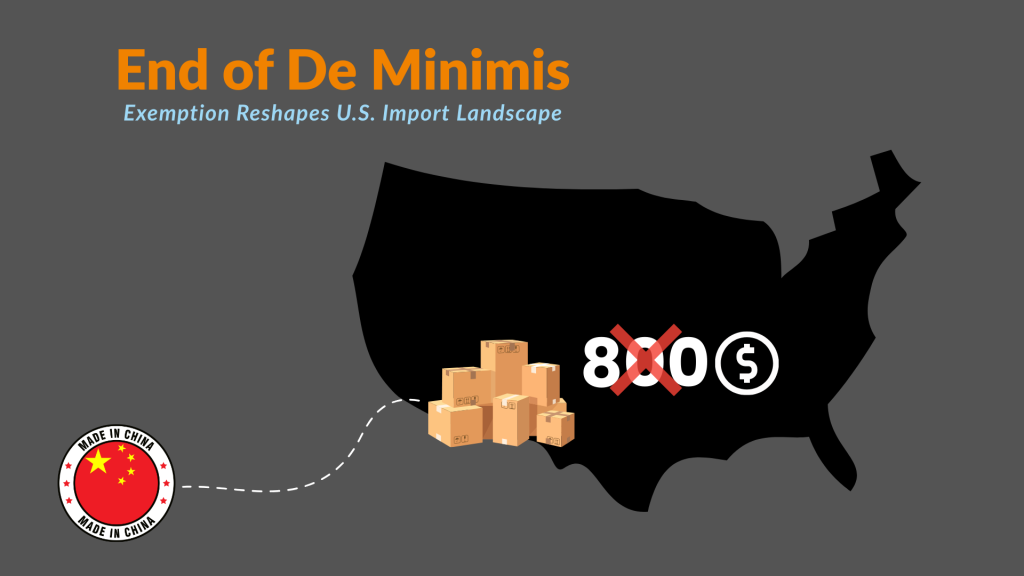
A major change in U.S. trade policy is set to impact millions of online shoppers and international sellers. August 29, 2025, the U.S. government has officially ended the de minimis exemption, a long-standing rule that allowed overseas orders under $800 to enter the country without paying import duties.
Now, all international parcels—regardless of value—will be subject to standard customs duties. The change, implemented by U.S. Customs and Border Protection (CBP), took effect at 12:01 a.m. EDT and is expected to reshape the landscape of global e-commerce and cross-border shipping.
What Was the De Minimis Exemption?
The de minimis exemption was first introduced in 1938 to simplify customs processing for low-value goods. In 2015, the threshold was raised from 200to200to800 to support the growth of small businesses and e-commerce.
For years, the rule allowed millions of packages from overseas retailers—especially from China—to arrive in the U.S. duty-free. Fast-fashion giants like Shein and Temu used the exemption to offer low-cost products directly to American consumers.
That loophole is now closed.
A Permanent Policy Shift
The exemption was initially suspended in May 2025 for shipments from China and Hong Kong, which accounted for about 75% of all de minimis imports. Since that change, CBP has collected over $492 million in new duties on parcels from those regions.
Now, the policy has been expanded to cover all countries, marking what officials describe as a “permanent change.”
“This is a permanent change,” said a senior administration official. “Any effort to restore the exemption—even for trusted trade partners—is dead on arrival.”
How Much Will Duties Cost?
Under the new system, duty rates will vary based on the country of origin:
- $80 per parcel from countries with duty rates under 16% (e.g., the UK and EU)
- $160 per parcel from countries with duty rates between 16% and 25% (e.g., Vietnam and Indonesia)
- $200 per parcel from countries with duty rates above 25% (e.g., China, India, Brazil, and Canada)
These new fees will directly affect the final price consumers pay for imported goods—and could make many international products significantly more expensive.
What This Means for Consumers and Businesses
For American shoppers, this means higher prices on many imported goods, especially low-cost items purchased from overseas marketplaces. The U.S. dollar simply won’t stretch as far as it used to when buying from international sellers.
For e-commerce companies, the end of the exemption could trigger major changes in pricing, logistics, and sourcing. Some retailers may shift operations to U.S. warehouses or raise prices to offset the new duties.
Logistics providers are also expected to face more complex customs processing and potential delays, as more parcels now require duty assessments.
A Shift Toward Protectionism?
The removal of the de minimis exemption is part of a broader trend toward tightening trade rules and protecting U.S. businesses. Critics of the old policy argued that it gave foreign sellers an unfair advantage by allowing them to avoid taxes and regulations that domestic companies had to follow.
While the change may benefit U.S. manufacturers and reduce trade imbalances, it also marks the end of an era of duty-free online shopping for American consumers.
Are you reevaluating your freight shipping routes? Contact Linktrans for a free quote.








